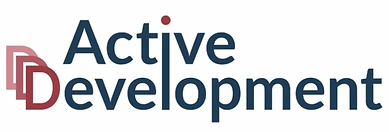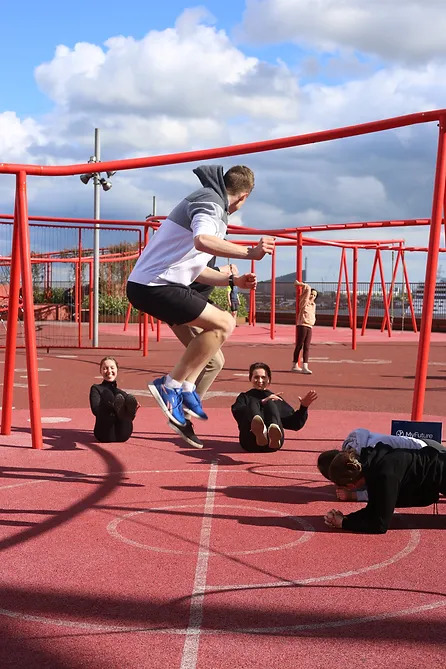
It is extremely important when developing soft skills REFLECTION PROCESS. Therefore, we encourage you…
COMMUNICATION

What is communication and why is it so important?
Communication is the ability to communicate or exchange thoughts and feelings effectively. It is one of the most important soft skills required by employers in all professions, but also at school, college or at home. This is due to the fact that we use it in everyday life. Communication allows you to express yourself in a clear and understandable way for the recipient. We can point to verbal and non-verbal communication, which are the most popular types, but also written, presentation, active listening and giving constructive feedback.
It should be remembered that communication works both ways – we not only speak ourselves, but we should also be able to listen to others. In this way, it is much easier to understand instructions, make requests, learn new skills and pass on information.
Effective communication can prevent tensions and aid teamwork, which is important in any industry. It can also help you negotiate for a pay raise, promotion or delegation of responsibilities to the right people in the group. Additionally, clear communication between team members or between team and client can lead to project success.
Communication in job offers
Many companies in their job advertisements write what skills they require from a new employee. Let’s look at some examples:
- “It is important to communicate effectively with a high degree of customer focus both verbally and in writing and with staff to clarify and resolve questions and concerns. This can be done via email, phone call and chat, or instant messaging.”
- ,,We require good oral and written communication skills as well as a positive and energetic telephone presence. Listening skills are also important. In our company, we have clients from all over the world, which is why it is so important for us to communicate information clearly.”
- “Communicate effectively both verbally and in writing with employees to answer their questions and address their concerns”
- “Ensure regular proactive communication between clients and teams to ensure strong team representation and correctly identify client expectations”
The power of communication
Communication has a superpower. Imagine you are going to a job interview. You get the question: “Where do you see yourself in 5 years?”. You won’t expect such a question and you have no idea where you actually see yourself in 5 years, but you have to answer something. Imagine two reactions/answers to this question:
- Your hands shake, you start looking at the floor and you answer: “I don’t know”.
- You take a deep breath, smile and say, “Well… that’s a very good question. To be honest, I don’t really know where I see myself in 5 years. I believe that the coming months in my future workplace will inspire me to have a long-term vision “
Do you see the difference between these two ways of communication styles? Which answer do you think is better?
How can I check my communication level?
Get over yourself. How many of these things are true?
- In everyday life I use verbal communication and make sure that what I say is understood.
- During a conversation, I listen actively to understand what other people want to tell me.
- When someone asks me for my opinion, I can give constructive feedback.
- When I’m talking to someone, I wonder how what I’m saying is affecting that person’s feelings.
How to support the development of communication skills?
- Clear message – sometimes we want to share a lot of information on a given topic – then we use a lot of verbal communication and speed it up. This is not a good idea as it increases stress levels and makes it harder for the other person to understand what you are trying to say. Remember to think before you speak. You can pause to pay attention to what you want to say. This may reduce the number of potential errors.
- Focusing on non-verbal communication – Mastering non-verbal cues and gestures can help prevent communication errors and signal your interest to those around you. Pay attention to your facial expressions and body language when you are talking to someone. Your non-verbal messages influence the first impressions you make on someone. Maintaining eye contact, limiting hand gestures, and good posture contribute to making a good first impression.
- Listening, listening and more listening – people want to know that they are being listened to. Really listen to what the other person is saying instead of formulating your answer. Ask for clarifications to avoid misunderstandings. At this point, the person talking to you should be the most important person in your life. Another important point is having one conversation at a time. This means that if you are on the phone with someone, do not reply to an email or send a message at the same time. The other person will know they don’t have your full attention.
- Practicing public speaking – Public speaking can sound daunting, but there’s no better way to develop good communication skills than by looking for opportunities to do so. Great speakers are able to express their feelings clearly, whether they are speaking to a large group or talking face to face with one person. Performing regularly in front of a group will highlight your strengths and weaknesses and force you to develop great communication habits.
Remember – no one is perfect at the beginning. Everyone makes mistakes, but it’s important to want to develop your skills.
Here is a list of our recommended books/articles/courses etc if you want to develop your communication skills:
- xxx
- xxx
- xxx
- xxx

